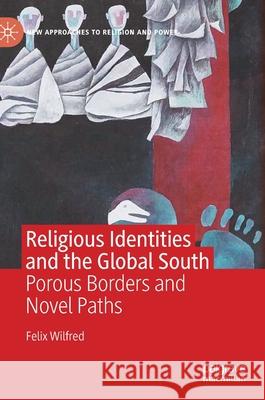Religious Identities and the Global South: Porous Borders and Novel Paths » książka
topmenu
Religious Identities and the Global South: Porous Borders and Novel Paths
ISBN-13: 9783030607371 / Angielski / Twarda / 2021 / 384 str.
Religious Identities and the Global South: Porous Borders and Novel Paths
ISBN-13: 9783030607371 / Angielski / Twarda / 2021 / 384 str.
cena 523,30
(netto: 498,38 VAT: 5%)
Najniższa cena z 30 dni: 501,19
(netto: 498,38 VAT: 5%)
Najniższa cena z 30 dni: 501,19
Termin realizacji zamówienia:
ok. 22 dni roboczych.
ok. 22 dni roboczych.
Darmowa dostawa!
Kategorie:
Kategorie BISAC:
Wydawca:
Palgrave MacMillan
Seria wydawnicza:
Język:
Angielski
ISBN-13:
9783030607371
Rok wydania:
2021
Wydanie:
2021
Numer serii:
000412771
Ilość stron:
384
Waga:
0.62 kg
Wymiary:
21.01 x 14.81 x 2.24
Oprawa:
Twarda
Wolumenów:
01
Dodatkowe informacje:
Wydanie ilustrowane











